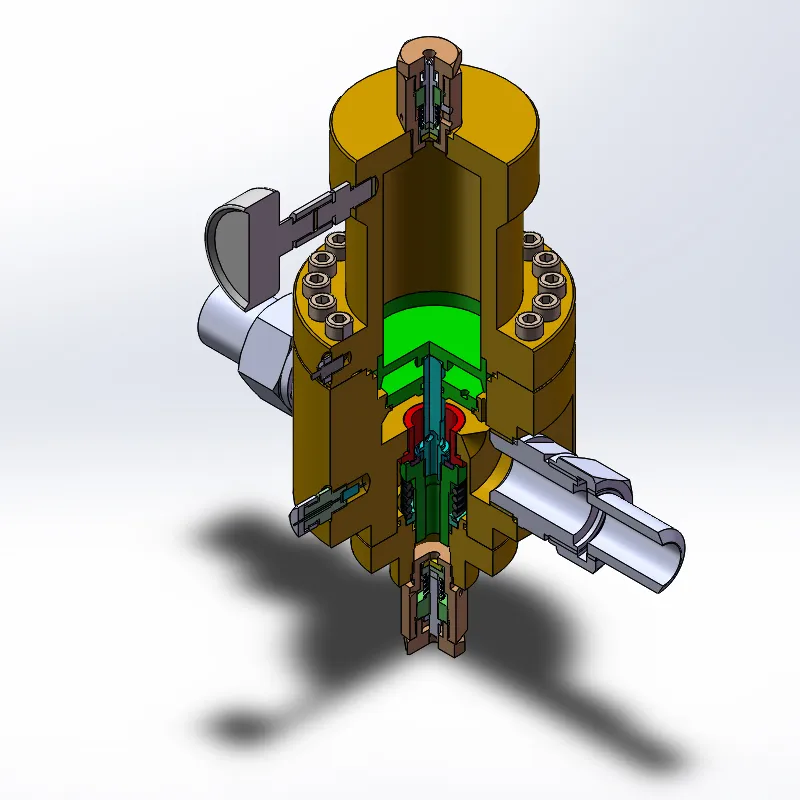
Nov . 15, 2024 23:20
Back to list
مرشح الغاز الطبيعي
The Role of Natural Gas Filters in Modern Energy Solutions
In recent years, the global energy landscape has undergone a significant transformation, driven by the urgent need for cleaner and more sustainable energy sources. Among these, natural gas has emerged as a crucial player, being a transitional fuel that supports the energy transition to renewables. However, the effective utilization of natural gas comes with its own set of challenges, particularly in terms of its purity and quality. This is where natural gas filters play an essential role in ensuring that this vital energy source is safe, efficient, and environmentally friendly.
.
Natural gas filters are designed to remove unwanted substances and ensure that the gas delivered to consumers is of the highest possible quality. These filters can vary in design and complexity, ranging from simple mesh screens to advanced technologies that utilize chemical and physical processes for removal of contaminants. The primary types of filters include coalescing filters, adsorptive filters, and membranes. Each type of filter is specialized for different contaminants and applications, highlighting the importance of selecting the right filtration method based on the specific requirements of the gas at hand.
مرشح الغاز الطبيعي

One of the most significant benefits of employing natural gas filters is the protection they provide to downstream equipment. Engines, turbines, and burners are sensitive to contaminants, and the presence of particulate matter or corrosive gases can lead to increased maintenance costs, unplanned downtimes, and reduced efficiency. By ensuring that the gas is clean and dry, filters help optimize the performance of combustion systems and extend the lifespan of critical infrastructure.
Moreover, natural gas filters contribute to environmental protection. The removal of hydrogen sulfide and carbon dioxide is essential not only for preventing corrosion but also for reducing the greenhouse gas emissions associated with burning fossil fuels. Additionally, filters can also capture volatile organic compounds (VOCs) and other hazardous substances, which play a significant role in air pollution. By using advanced filtration technologies, the natural gas industry can mitigate its environmental footprint and comply with increasingly stringent emissions regulations.
The advancements in filter technology have also led to greater efficiency in natural gas usage. High-performance filters are now capable of operating at higher flow rates while maintaining low pressure drops, thus ensuring that the energy loss during filtration is minimized. This efficiency not only translates to cost savings for manufacturers and consumers but also enhances the overall sustainability of natural gas as an energy source.
In conclusion, the role of natural gas filters in the energy sector cannot be overstated. As the world continues to grapple with climate change and energy demands, the need for clean and sustainable energy solutions becomes more pressing. Natural gas filters serve as a critical component of this ecosystem by ensuring the purity and quality of natural gas, protecting equipment from contamination, and reducing the environmental impact associated with fossil fuel combustion. The continuous innovation in filtering technologies promises to further enhance the efficiency and reliability of natural gas, solidifying its position as a transitional fuel in the global strategy for a sustainable energy future. By investing in robust filtration systems, we can pave the way for a cleaner, more efficient, and environmentally conscious energy landscape.
Next:
Latest news
-
Safety Valve Spring-Loaded Design Overpressure ProtectionNewsJul.25,2025
-
Precision Voltage Regulator AC5 Accuracy Grade PerformanceNewsJul.25,2025
-
Natural Gas Pressure Regulating Skid Industrial Pipeline ApplicationsNewsJul.25,2025
-
Natural Gas Filter Stainless Steel Mesh Element DesignNewsJul.25,2025
-
Gas Pressure Regulator Valve Direct-Acting Spring-Loaded DesignNewsJul.25,2025
-
Decompression Equipment Multi-Stage Heat Exchange System DesignNewsJul.25,2025

